My recent UK road trip left me £400 (S$685.82) lighter in the pocket, but the experiences I gained were priceless. This cost excludes airfare, so be sure to factor in the price of flights from your home country to the UK. While travelling in the UK isn’t as budget-friendly as backpacking through Southeast Asia or South America, the recent decline in the pound’s value has made it more affordable for travellers. Consider venturing beyond the bustling cities to maximise your budget and experience genuine hospitality.
Before embarking on your UK road trip, ensuring you have reliable travel insurance is a must. For peace of mind and exceptional customer support, consider HL Assurance Pte Ltd, the winner of the Best Customer Service (Insurance) category at the TripZilla Excellence Awards 2024. Their dedication to providing top-notch service ensures you’re covered for unexpected travel mishaps, making your journey worry-free. With HL Assurance’s comprehensive policies and outstanding service, you can focus on exploring the UK’s scenic landscapes without a hitch!
Before diving into the detailed breakdown of my road trip expenses, I must emphasise that SCOTLAND IS BEAUTIFUL.
Also read: Scotland Has A New Bike Tour Featuring Whiskey, Castles, & Scenic Villages!

The Old Man of Storr
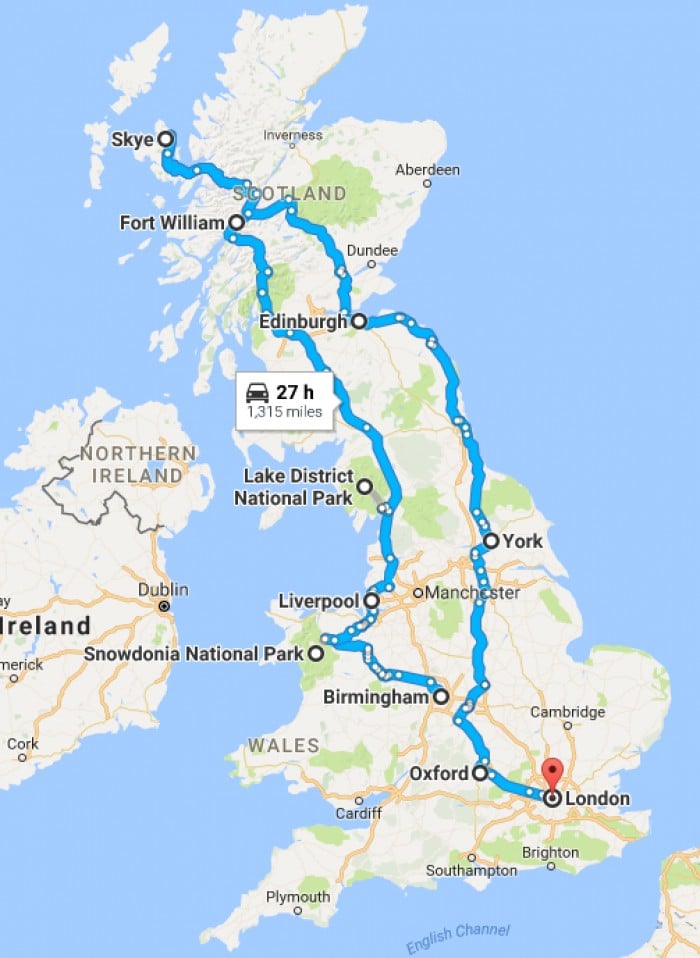
Rough pit stops of the trip
Car
Renting a vehicle is a crucial aspect of any road trip, and it’s essential to keep costs low. I opted for a 2016 Alfa Romeo Giulietta S with a fuel-efficient 2.0 diesel engine, renting it from Sixt for £270 (~S$462.93). This amounted to approximately £27 (~S$46.29) per day, making it a budget-friendly choice.
I recommend sharing the car with 2-3 people to minimize costs, especially if space isn’t a major concern. Diesel-powered cars offer better fuel efficiency, and I spent around £200 (~S$342.91) on fuel for 2,100 miles. While fuel prices in the UK are comparable to Singapore, they are higher than in the US.
I chose the basic insurance included in the rental price, as additional coverage can significantly increase costs. Keep in mind that most budget car rentals in the UK, and potentially Europe, offer manual transmission vehicles. If you’re not comfortable with manual cars, automatic options can be significantly more expensive. Given the hilly terrain in the UK, I opted for an automatic transmission.
While toll roads are relatively uncommon in the UK, congestion charges in central London can add to your expenses. Parking costs can also accumulate, especially in urban areas. To save money, take the time to search for free street parking, or ask residents for tips.
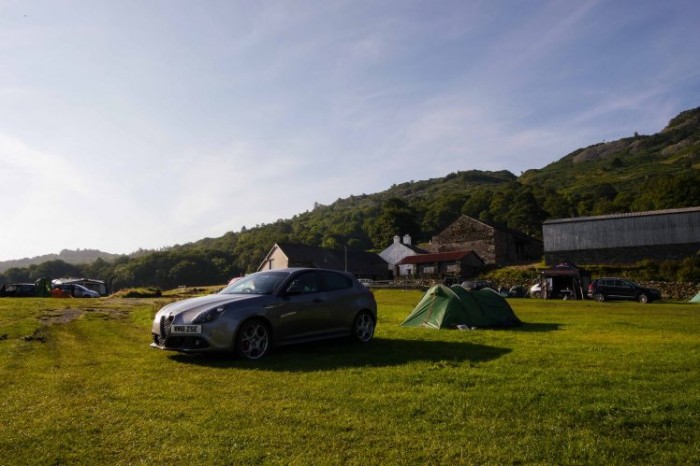
Baysbrown campsite, Lake District
Accommodation
For these 9 nights, there were 3 days of camping, 3 days of Airbnb and 3 days of my dorm.
Camping is the most budget-friendly accommodation option, averaging around £15 (~S$25.72) per night for a tent and car. I highly recommend camping as it offers a unique opportunity to immerse yourself in nature.
Airbnbs typically cost around £30 (~S$51.44) per night for two people. Consider alternating between camping and Airbnb stays to refresh and recharge. One significant advantage of Airbnb is the ability to do laundry at the host’s apartment, saving money on public laundry facilities.
It’s important to be aware of potential challenges, such as sand fly infestations, especially on the Isle of Skye during the summer months. To minimise discomfort, consider wearing full clothing or using insect repellent.
Also read: What to Know Before Travelling to the United Kingdom
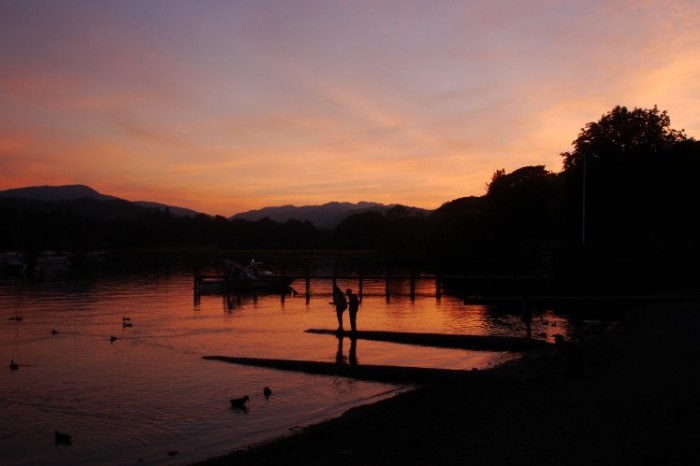
Sunset at Ambleside, Lake District
Places to go
The trip’s highlights were undoubtedly the stunning natural landscapes and charming cities.
For hiking enthusiasts, Snowdonia National Park in Wales offers a vast network of trails. The Lake District in Northwest England, one of the UK’s most popular parks, requires several days to explore its immense beauty. On your way to the enchanting Isle of Skye, consider spending a night in the Fort William/Ben Nevis region, known for its breathtaking scenery. Don’t miss the opportunity to witness the iconic Harry Potter Jacobite train passing through Glenfinnan Viaduct, and explore the nearby hiking trails for unique views.
The Isle of Skye boasts breathtaking landscapes worthy of National Geographic. Allocate at least three days to fully appreciate its beauty. The Old Man of Storr is a must-visit, offering a challenging but rewarding hike with panoramic views from the summit. Be prepared for sand flies near the parking area and trailhead, so wear light-coloured clothing and cover exposed skin. Portree, with its picturesque harbour and diverse dining options, is an ideal base for exploring the island.
Beyond the natural wonders, the UK boasts charming cities like Liverpool, Glasgow, Edinburgh, York, Oxford, and London. For budget-conscious shoppers, consider visiting Bicester Village or Cheshire Oaks. While these outlet malls offer great deals, focus on European brands for better value.
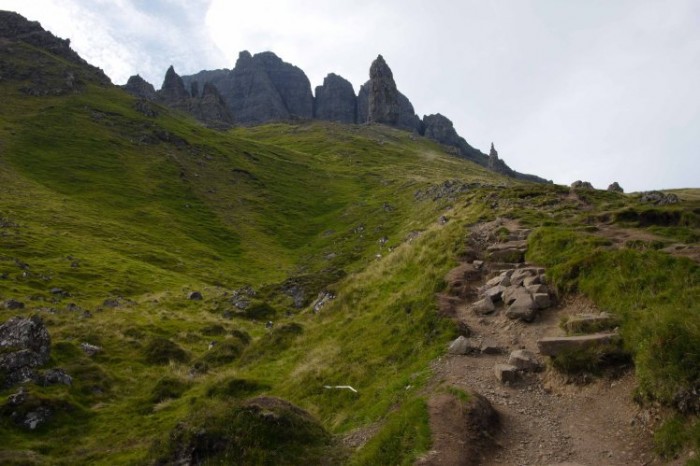
The trail up to The Old Man of Storr
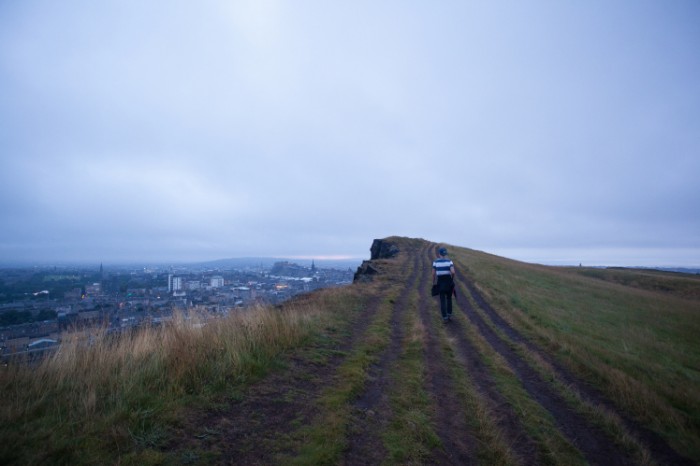
Arthur’s Seat, Edinburgh
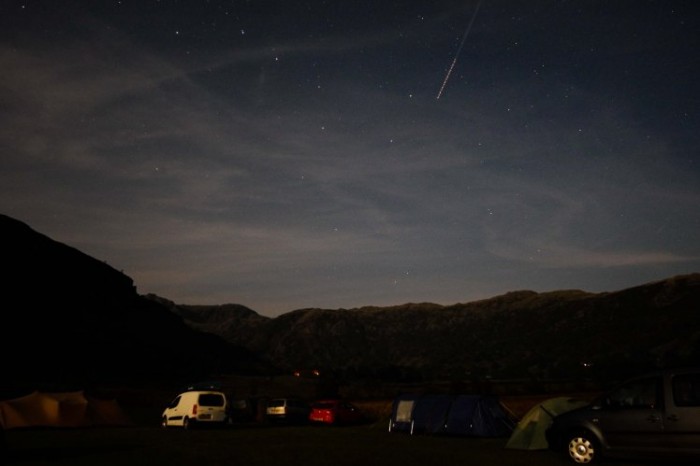
Summer night at Lake District
Food
Eating out in the UK can be expensive, with Asian takeout costing around £6-8 (~S$10.29—S$13.72). For longer camping trips, cooking your own meals at the campsite is a cost-effective option. Supermarkets like Tesco and Sainsbury’s offer affordable groceries, and their deli sections often have discounted roasted whole chickens for £2-3 (~S$3.43—S$5.14).
Public transportation in the UK can also help you save money. Look for fast-food coupons on bus tickets, which can be used at chains like McDonald’s and Burger King. With a coupon, you can get a Big Mac and regular fries for just £2 (~S$3.43), a significant discount.
Also read: 7 One-Week Itineraries in the United Kingdom
Miscellaneous
Before purchasing a data SIM card, consider your specific needs. Many highways and national parks, especially those using Giffgaff or O2 networks, have limited or no data coverage. I spent £15 (~S$25.72) on a SIM card with 4GB of data and 1000 minutes of talk time, which proved sufficient for city areas with ample Wi-Fi access.
For camping gear, consider shopping at stores like GO Outdoors and SportsDirect. Invest in quality sleeping bags and tents as even summer nights can get quite cold.
Final breakdown based on per person (twin sharing):
- Car: 135.46
- Gas for 2100 miles: 100.20
- Parking: 1.6
- Airbnb for 3 nights: 44.5
- Camping for 3 nights: 24.15
- Data plan: 7.5
- Tent and sleeping bag: 15
- Food: 80
Total: 408.41
This is the rough breakdown of my spending that I deemed crucial to my fellow travellers in planning their budget for a UK road trip. Take note that 3 nights of my accommodation were spent in my dorm as a base to explore London and Oxford.
Meanwhile, enjoy some of my pictures from the trip before my photography post.
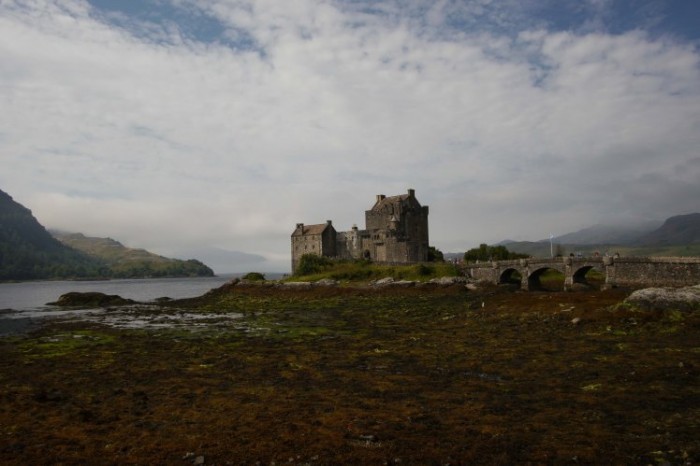
Eileen Donan Castle, Isle of Skye
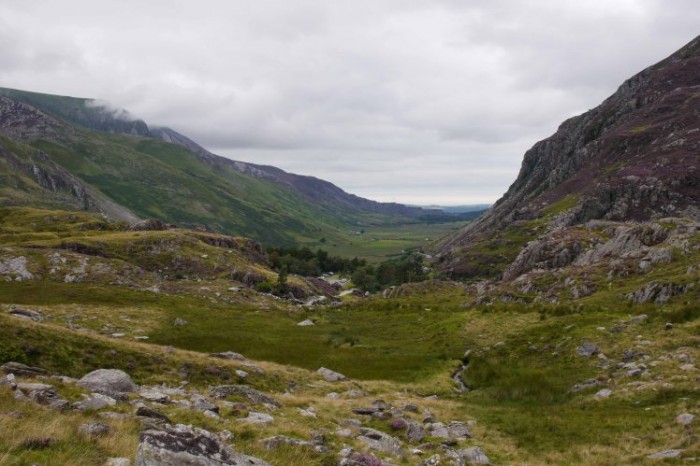
Snowdonia National Park, Wales

Kilt Rock, Isle of Skye
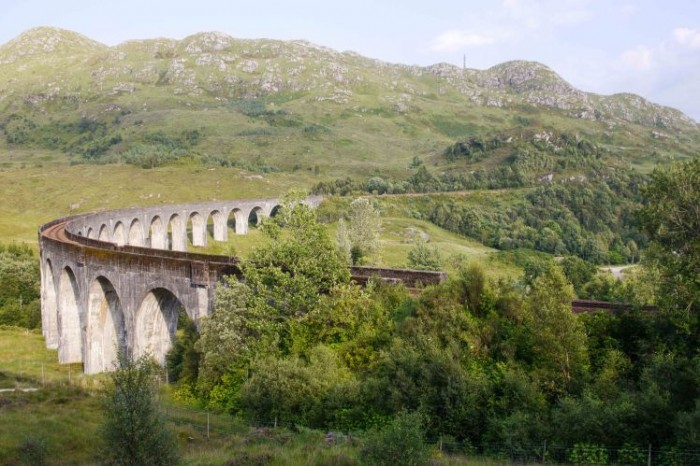
Glenfinnan Viaduct

Mayfield Lavender
Contributed by The More I Travel




